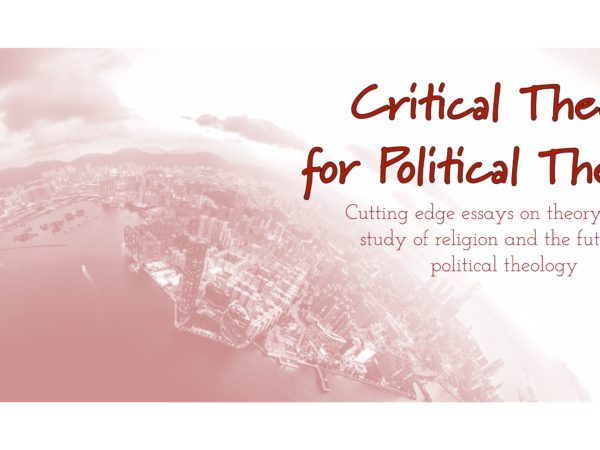
Asian American literary criticism’s analysis of contemporary orientalisms centered around the figuration of Asian subjectivities reminds political theologians that unconscious (white) fear and fascination with the Orient still guides political and theoretical engagement with the Asian “other.”

Signifying a critical homology between the fields of Black studies and political theology, gratuitous violence is an important keyword for interrogating how religio-political concepts can afford unique insights into issues of slavery, race, and the human which continue to inform our world today.

Where state sovereignty as theology would have subjected groups accept their condition with its attending violence and suffering, the micro sovereignty I propose here – not merely as a futuristic idea, but more as a reflection on how subjected groups have dealt with subjection – invites us not to accept that violence and suffering, but to find creative ways out of it through the cracks of Empire.

In autopoiesis, there is no separation between what we do and the particular way in which the world appears to us.

Native survivance, in [Gerald] Vizenor’s parlance, is a combination of the words “survival” and “resistance,” and it “creates a sense of presence.” According to him, “The suffix -ance designates a condition, a nature, or a quality that is more than a mere description of survival.”

We launched this series to make available theoretical resources that keep pace with the concerns raised by those working with political theology today, whose interests are increasingly tied not only to questions of genealogy, speculation, and political modernity, but also to questions of race, colonialism, gender, sexuality, disability, ecology, labor, finance capitalism, and economies of affect.

Berlant is our preeminent contemporary theorist of how intimate practices bleed into and with national formations, and condition specific and powerful fantasies for what a good life or functional society would involve. To read their work is to become attuned to a set of dynamics that can be excavated in any given scene: the attachments being made and unmade, the forms of belonging that flash up and dissolve, the feeling-worlds that mediate everyday life, what remains unfinished.




